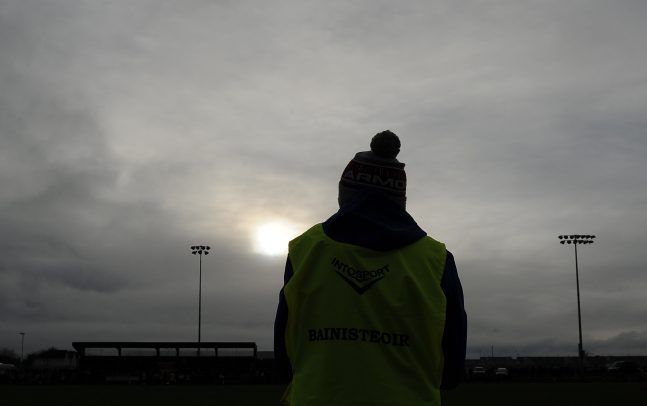

Share
13th May 2017
06:08pm BST

 The sessions probably just include sprints: 100 metres, 200 metres, figures of eight and him standing there all the while bollocking the life out of you for not going faster.
Anyone could do that. But this guy is getting paid to do it.
The thing is, because he's getting paid, he doesn't want to take any chances and he knows the quickest and safest avenue to relative improvement is to get you fit and set you up defensively. It's a vicious circle. The guys being paid offer you no palpable change really. They offer you nothing unique but they deliberately don't offer that because they've got an income at stake - they play safe. And you're paying for that... go figure.
On The GAA Hour hurling show, dual star Conal Keaney perfectly summed up the problem with paying managers. The idea of full-time county coaches was floated but the Dubliner was having none of it.
The sessions probably just include sprints: 100 metres, 200 metres, figures of eight and him standing there all the while bollocking the life out of you for not going faster.
Anyone could do that. But this guy is getting paid to do it.
The thing is, because he's getting paid, he doesn't want to take any chances and he knows the quickest and safest avenue to relative improvement is to get you fit and set you up defensively. It's a vicious circle. The guys being paid offer you no palpable change really. They offer you nothing unique but they deliberately don't offer that because they've got an income at stake - they play safe. And you're paying for that... go figure.
On The GAA Hour hurling show, dual star Conal Keaney perfectly summed up the problem with paying managers. The idea of full-time county coaches was floated but the Dubliner was having none of it.
"Obviously everyone knows that managers are getting paid at the top level and at club level even," Keaney said. "I don't like the fact that a manager is coming in from the outside - into your county or club - and he's getting paid. Then he starts dictating what he wants to do and he wants to go training six nights a week because he's getting paid by the night. "You're saying to him, 'I'm working tomorrow morning at six o'clock. I can't do this or I can't do that' and he says, 'well, are you committed to the cause or not?' "You're like, 'Hang on a second, you're the one who's getting the money here.' Little things like that are really frustrating. "Training so hard in November, December, January and February and then when it comes down to the actual playing of the game, that's where a lot of the managers that are getting paid lack the ability, in my own opinion. "Everyone can go training four or five nights a week. Let's do the running or let's do the weights and he's standing there in the corner whilst he gets someone else to do it and he's still getting paid. It's very frustrating, a lot of that stuff."Listen to the full discussion below from 08:45.
Explore more on these topics: